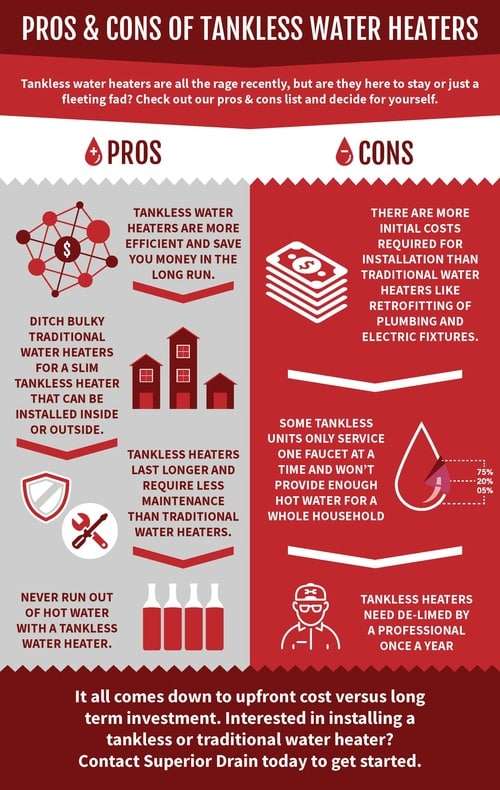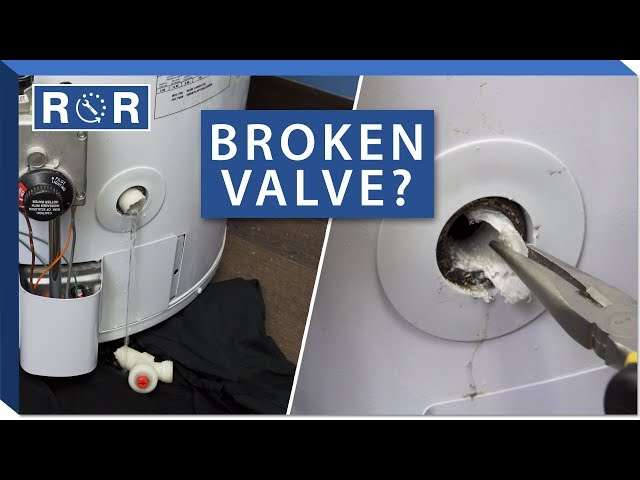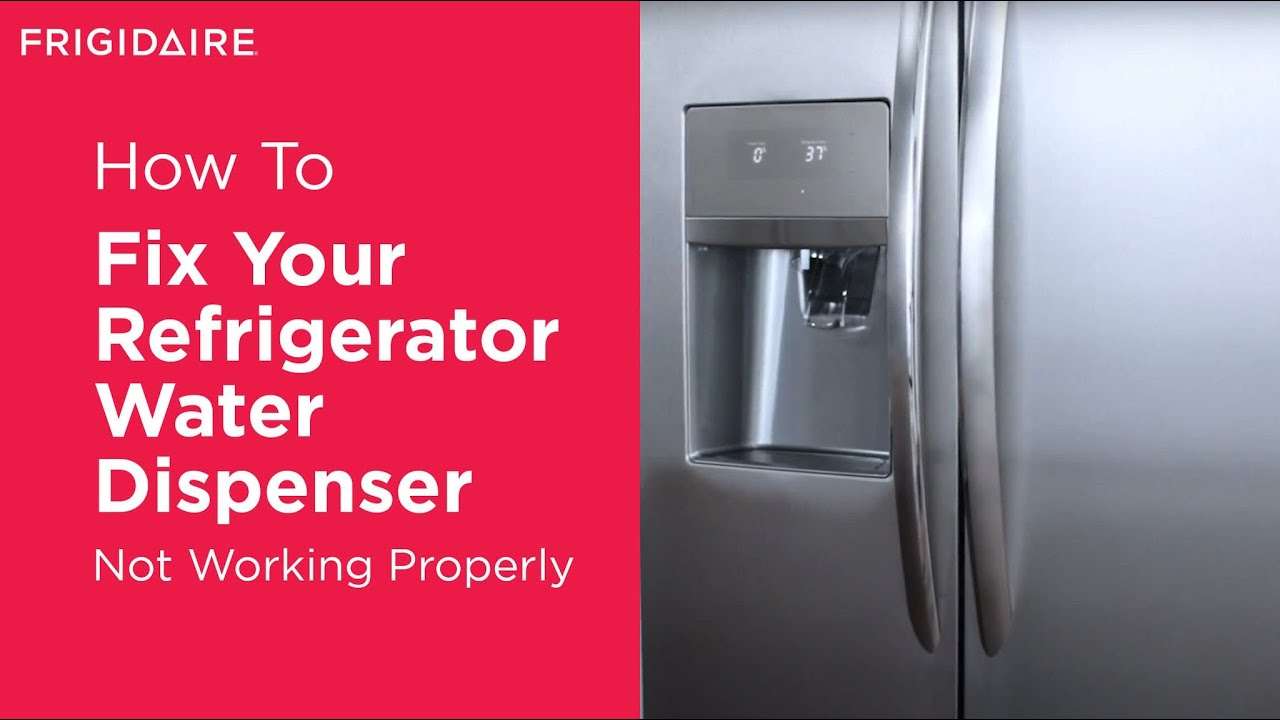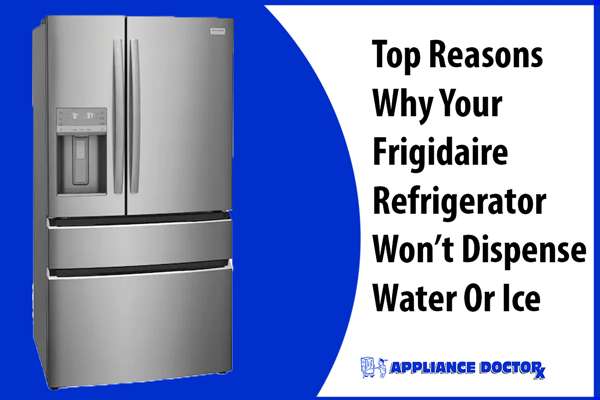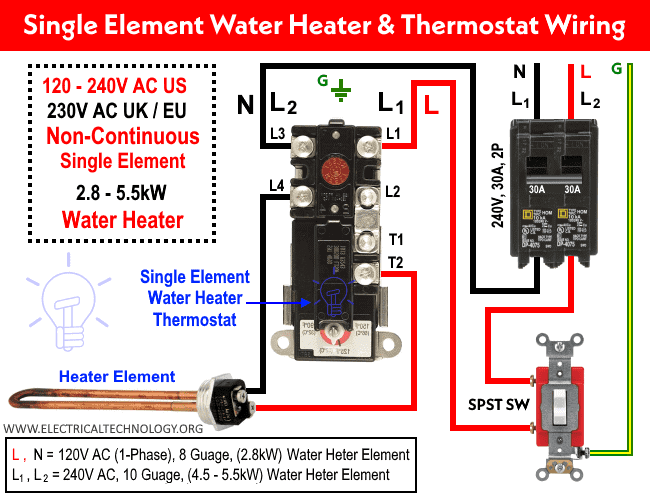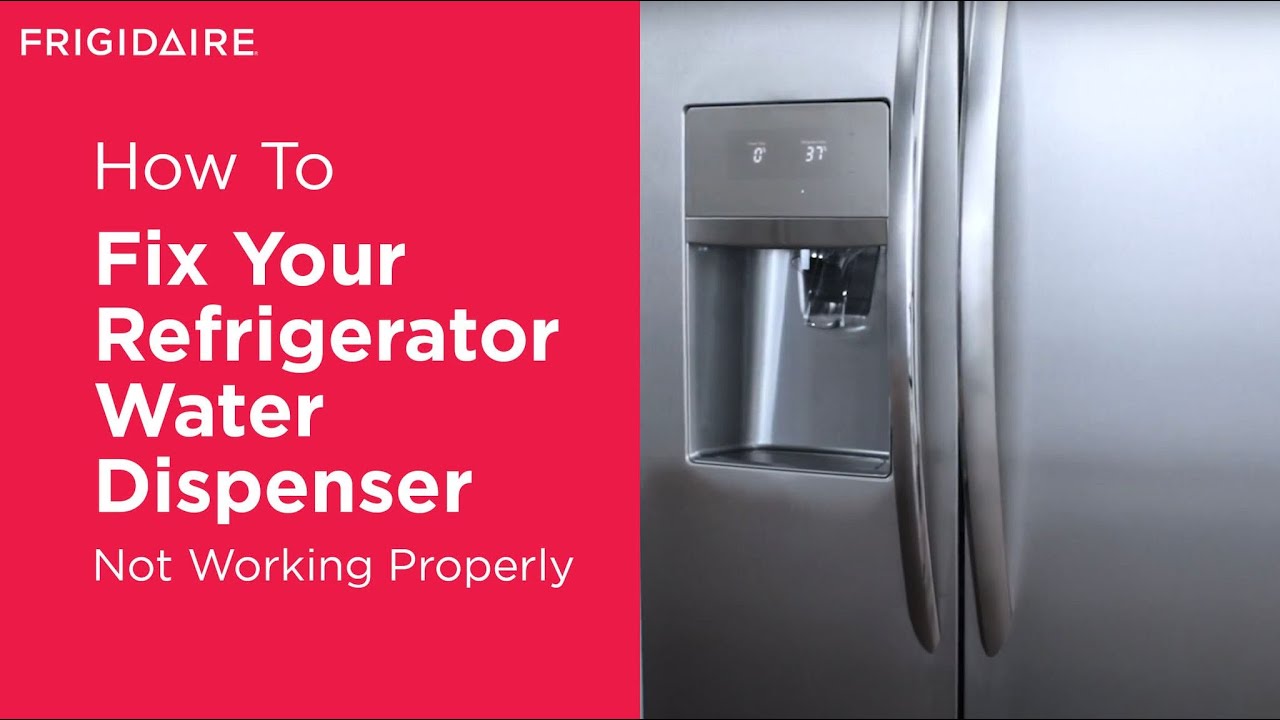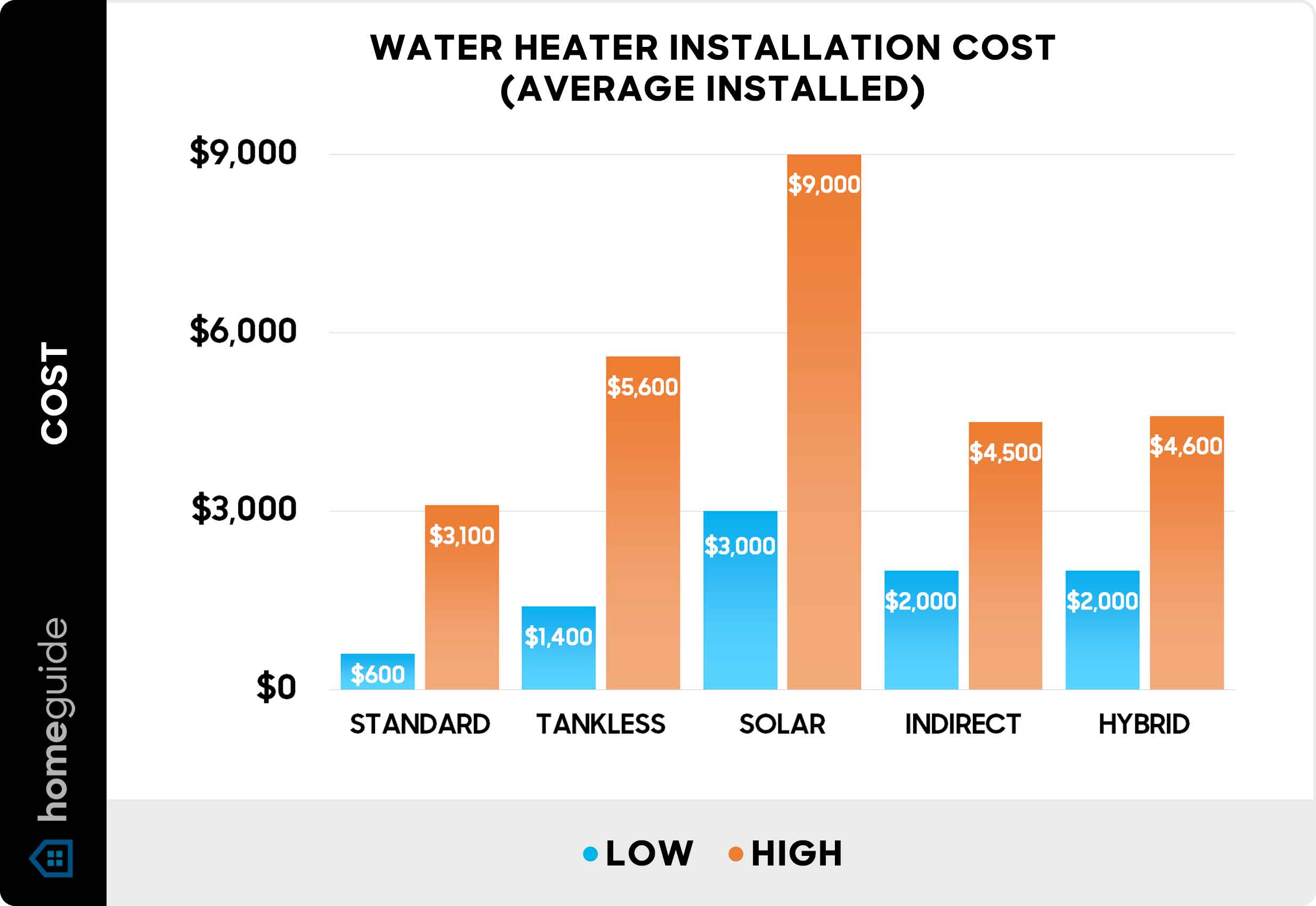Tired of running out of hot water in the middle of a shower? Considering a new water heating system for your home? Then you’re probably wondering‚ what are the advantages of a tankless water heater? These modern marvels offer a compelling alternative to traditional tank-based systems‚ providing on-demand hot water and potentially saving you money in the long run. The benefits extend beyond just endless showers‚ as tankless water heaters also offer space-saving designs and increased energy efficiency. Let’s delve into the specific advantages that make them a popular choice for homeowners.
Endless Hot Water on Demand
The most significant advantage of a tankless water heater is the ability to provide hot water on demand. Unlike traditional tank heaters‚ which store a limited supply of heated water‚ tankless systems heat water only when you need it. This means you’ll never have to worry about running out of hot water‚ even if multiple people are showering or running appliances simultaneously. This is especially beneficial for large families or households with high hot water demands.
Space-Saving Design
Tankless water heaters are significantly smaller than traditional tank heaters. This compact design allows for installation in smaller spaces‚ freeing up valuable square footage in your home. You can mount them on a wall or even tuck them away in a closet‚ maximizing your usable space. This is a major advantage for apartments‚ condos‚ or homes with limited storage.
Increased Energy Efficiency
Tankless water heaters are generally more energy efficient than tank heaters because they only heat water when it’s needed. Traditional tank heaters constantly heat and reheat water‚ even when it’s not being used‚ leading to energy waste. Tankless systems eliminate this standby heat loss‚ potentially saving you money on your energy bills; Here are some specific points:
- No standby heat loss.
- Heats water only when needed.
- Longer lifespan than traditional tank heaters.
Longer Lifespan
Tankless water heaters typically have a longer lifespan than traditional tank heaters. While tank heaters usually last around 10-15 years‚ tankless systems can last 20 years or more with proper maintenance. This extended lifespan can save you money in the long run by delaying the need for replacement.
Potential Tax Credits and Rebates
Depending on your location and the specific model you choose‚ you may be eligible for tax credits or rebates when you install a tankless water heater. These incentives can help offset the initial cost of the system and make it an even more attractive option.
Comparison Table: Tank vs. Tankless Water Heaters
| Feature | Tank Water Heater | Tankless Water Heater |
|---|---|---|
| Hot Water Supply | Limited by tank size | Unlimited‚ on-demand |
| Space Requirement | Large‚ requires dedicated space | Compact‚ can be wall-mounted |
| Energy Efficiency | Lower‚ standby heat loss | Higher‚ no standby heat loss |
| Lifespan | 10-15 years | 20+ years |
| Initial Cost | Lower | Higher |
Considerations Before Switching
While tankless water heaters offer numerous advantages‚ there are also some considerations to keep in mind. They typically have a higher upfront cost than traditional tank heaters. Also‚ they may require professional installation‚ which can add to the overall expense. Furthermore‚ some older homes may need electrical upgrades to accommodate the higher power demand of a tankless system.
A comprehensive evaluation of household hot water consumption patterns is advisable prior to committing to a tankless system. A detailed analysis‚ incorporating factors such as the number of occupants‚ frequency of simultaneous hot water usage (e.g.‚ showering while running a dishwasher)‚ and desired water temperature‚ will facilitate a more informed decision. Moreover‚ the type of fuel source available (natural gas‚ propane‚ or electricity) constitutes a significant determinant in the selection process‚ as each fuel type possesses distinct operational characteristics and associated costs. Natural gas and propane models generally exhibit higher flow rates and recovery speeds‚ making them suitable for larger households with substantial hot water demands. Electric models‚ while potentially simpler to install‚ may have lower flow rates and necessitate significant electrical infrastructure upgrades in certain residential settings.
INSTALLATION AND MAINTENANCE PROTOCOLS
The installation of a tankless water heater should invariably be entrusted to a licensed and qualified professional. Improper installation can compromise the system’s efficiency‚ void warranty provisions‚ and potentially create hazardous conditions. A thorough inspection of the existing plumbing and electrical infrastructure is paramount prior to commencement of the installation process. Furthermore‚ adherence to all applicable local building codes and regulations is mandatory. Post-installation‚ regular maintenance is crucial to ensure optimal performance and longevity of the unit. This includes periodic descaling to remove mineral buildup‚ inspection of venting systems‚ and verification of proper combustion. Failure to perform routine maintenance can result in decreased efficiency‚ reduced flow rates‚ and premature system failure.
TECHNOLOGICAL ADVANCEMENTS IN TANKLESS SYSTEMS
Contemporary tankless water heaters incorporate a range of technological advancements designed to enhance performance and user experience. These innovations include:
– Modulating Burners: These burners automatically adjust the heat output based on the demand for hot water‚ optimizing energy efficiency and minimizing temperature fluctuations.
– Digital Thermostatic Controls: Precise temperature control allows users to set their desired water temperature with accuracy‚ preventing scalding and ensuring consistent performance.
– Self-Diagnostic Systems: These systems monitor the unit’s performance and alert users to potential issues‚ facilitating timely maintenance and preventing costly repairs.
– Remote Control Capabilities: Certain models offer remote control functionality via smartphone applications‚ enabling users to adjust settings and monitor performance from anywhere with an internet connection.
The integration of these technologies underscores the ongoing evolution of tankless water heating systems‚ further solidifying their position as a viable and increasingly attractive alternative to conventional tank-based systems. The selection of a specific model should be predicated upon a thorough evaluation of individual needs‚ budgetary constraints‚ and the technological features that best align with the anticipated usage patterns.
ENVIRONMENTAL CONSIDERATIONS
Beyond the economic advantages‚ tankless water heaters offer tangible environmental benefits. By eliminating standby heat loss‚ these systems contribute to a reduction in greenhouse gas emissions and overall energy consumption. The extended lifespan of tankless units‚ compared to traditional tanks‚ further minimizes the environmental impact associated with manufacturing and disposal. Moreover‚ the use of modulating burners and other energy-efficient technologies reduces the reliance on fossil fuels‚ promoting a more sustainable approach to water heating.
The decision to invest in a tankless water heater represents a significant commitment‚ requiring careful consideration of various factors. However‚ the potential for long-term cost savings‚ enhanced convenience‚ and reduced environmental impact makes it a compelling option for homeowners seeking a modern and efficient water heating solution. The future of water heating is undeniably trending towards on-demand systems‚ and understanding the nuances of these technologies is crucial for making informed decisions about home infrastructure.
